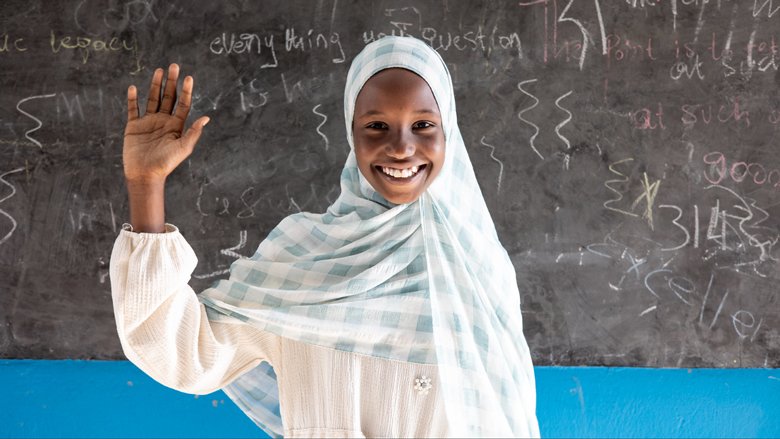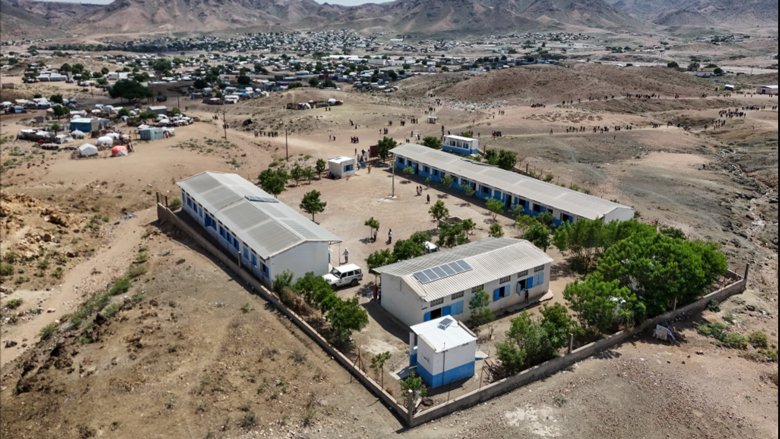Implementing a single curriculum
Previously managed by UNHCR, in partnership with NGOs from 2009 to 2016, the responsibility of managing refugee camps was transferred to the government in 2017, following the approval of the Djibouti Declaration on Refugee Education by the member countries of the Intergovernmental Authority on Development (IGAD), which includes Djibouti.
Until 2016, the curriculum taught in refugee schools was different from the national curriculum. In Ali Addeh, for example, the Kenyan curriculum was being taught.
This transition is a significant change in the way refugee children's education is handled in Djibouti, with the support of the Expanding Opportunities for Learning Project.
Refugee children, like Maria, follow the same curriculum as young Djiboutians of the same age and education level.
Except for the refugee village of Markazi, where teaching is done in Arabic (English and French are taught as foreign languages), the choice of English as the teaching language is justified, on the one hand, by the fact that most refugees come from English-speaking countries (Somalia, Ethiopia, Eritrea, Kenya).
On the other hand, it is also "... because we hoped that if these young people were to return to their country of origin, they would be able to better integrate into the job market," states the Minister of Education.
Improving teaching practices for better learning outcomes
The project has supported specialized training for teachers working in refugee schools.
To facilitate teaching of the national curriculum in these schools, the project financed the printing of revised materials (textbooks, guides, school booklets) and the translation of textbooks and curriculum.
Despite the efforts of the government and its partners, difficulties persist. The need for school infrastructure, for example, remains significant.
Added to this is the difficulty of some refugee children in integrating into their new environment and in understanding the language of instruction, for those coming from countries where English was not the language of instruction.
Undoubtedly, the government's commitment to integrating refugee children like her into the national system will contribute to Djibouti's development and influence.
The World Bank and GPE, in collaboration with partners, will continue to assist Djibouti in its journey towards transforming its education system, to ensure that all children, whether refugees or not, can fully exercise their right to a quality education.



